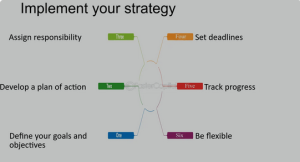The entry of new businesses into a market can have various effects on existing businesses, both positive and negative. The impact largely depends on factors such as the nature of the industry, the level of competition, and how well-established the existing businesses are. The purpose of this study is to highlight some of the effect of new businesses on existing ones.

The Effect of New Businesses on Existing Ones
Table of Contents
TogglePositive Effects:
- Increased Competition: New businesses introduce competition, which can drive existing businesses to improve their efficiency, quality, and innovation to maintain or gain market share. This competition is generally beneficial for consumers as it often leads to better products and services at competitive prices.
- Innovation: The entry of new businesses can spur innovation as companies strive to differentiate themselves and offer unique products or services to attract customers.
- Job Creation: The establishment of new businesses can lead to job creation, contributing to overall economic growth and reducing unemployment rates.
- Diversification: New businesses may introduce new ideas, products, or services, contributing to the diversification of the market and providing consumers with more choices.
- Market Expansion: New businesses can contribute to the growth of the overall market, attracting new customers and expanding the customer base.
Negative Effects:
- Market Saturation: The entry of too many similar businesses in a market can lead to saturation, making it difficult for all businesses, including existing ones, to thrive. This can result in intense price competition and lower profit margins.
- Erosion of Market Share: Existing businesses may see a decline in their market share as new entrants attract customers and establish their presence in the market.
- Financial Pressure: Increased competition can put financial pressure on existing businesses, especially if they are not well-prepared to adapt to changing market conditions.
- Barriers to Entry: Existing businesses may attempt to create barriers to entry, making it more difficult for new competitors to enter the market. This can include tactics such as establishing brand loyalty, securing exclusive contracts, or implementing aggressive pricing strategies.
- Consolidation or Exit: In response to heightened competition, some existing businesses may choose to consolidate with others or exit the market altogether if they find it challenging to compete effectively.
Overall, the entry of new businesses is a fundamental aspect of a dynamic and evolving economy. While it can pose challenges for existing businesses, it also presents opportunities for growth, improvement, and adaptation. How existing businesses respond to new entrants often determines their long-term success in a competitive environment. Adaptability, innovation, and a focus on customer needs are key factors that can help businesses navigate and thrive in the face of increased competition.
